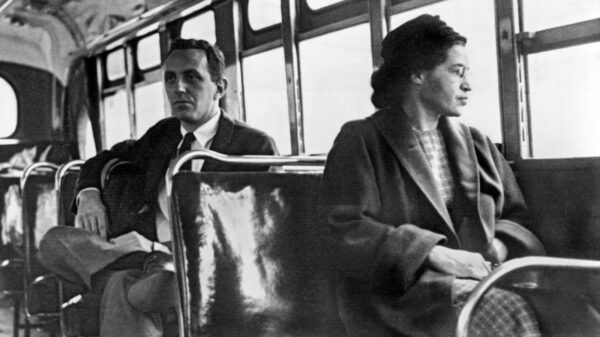Senate Bill 84, dealing with racial profiling, is on the proposed special order calendar for Tuesday. If SB84 comes to the floor, this will be the second day in a row that the leadership has brought the highly controversial bill to the floor.
Thursday, the Alabama House of Representatives rejected a bill that would require all Alabama law enforcement officers to record and report the race, age and ethnicity of everyone they stop as they go about their duties. The Attorney General’s office would then keep a file on every law enforcement officer in the state and keep statistics as to the racial composition of their stops. The bill also had a provision creating a complaint process.
The legislation never came up for a vote, instead the House rejected the budget isolation resolution, which allows debate to proceed. The BIR motion failed on a 34-50 vote.
Senate Bill 84 was sponsored by Sen. Rodger Smitherman, D-Birmingham. It was carried on the floor of the Alabama House by Rep. Merika Coleman, D-Midfield.
Coleman said that the bill creates a data collection system to fight racial profiling by police. This identifies the bad actors.
The measure is opposed by the Alabama Sheriff’s Association, who said that this bill created an unnecessary burden on law enforcement to collect all of this information.
State Representative Allen Farley, R-McCalla, a retired Jefferson County Deputy said that 99 percent of officers are good officers. “For the .5 percent who are NOT, we need to run their butts off.”
Rep. Farley said, “What this bill says is the the AGs office will work with the Sheriffs Association and the Police Chiefs Association to develop the paperwork.”
State Representative Connie Rowe, R-Jasper, a former Jasper police chief, said that the junior officer normally draws the less desirable assignments. She said that as chief she made an effort to hire more minority officers, but she had seen officers get in trouble with the community, and she was concerned that this would follow an officer throughout their career.
The House, for the second year in a row, voted down the bill on the BIR 34-50.
Critics of the bill suggested that this bill was an anti-law enforcement bill that would ultimately be used to file frivolous lawsuits against police departments across the state as well as to harass individual police officers. If a community has a gang problem that the police are fighting, it makes no sense to be stopping grandmothers.
Some members of the Black community have suggested that the police are targeting them.
Coleman, who is Black, said that her 17-year-old son has been stopped three times for questioning, though he has not been ticketed.
Alabama is 67 percent White and 26 percent Black, but the Alabama prison population is 42 percent White and 54 percent Black, according to records from 2015.
The racially divisive vote came just after the House voted 102-0 to set December 1 aside as Rosa Parks Day.



















































